All Contents
-
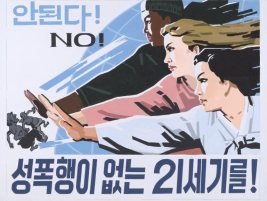
- No Longer Silenced!
-
A review of Unsilenced: Sexual Violence in Conflict, the UK’s first exhibition focusing on the issue of sexual violence during modern and contemporary global conflicts.
-
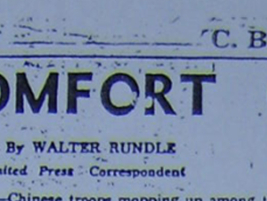
- “Comfort Girls”: The Forgotten Tragedy of Child Exploitation
-
The “Comfort Women” system was not only a violation of women’s rights, but also a grave infringement of children’s rights. In this article, Professor Ñusta Carranza Ko examines how imperial Japanese authorities systematically violated the rights of underage girls, in direct contravention of international conventions of the time, reframing the issue as a case of child rights violations.
-
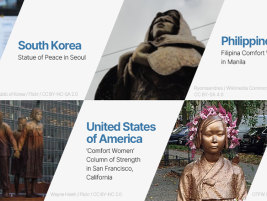
- Educating Difficult Histories and the Case of the “Comfort Women”
-
The Contested Histories Initiative (CHI) is a Europe-based NGO dedicated to studying disputes over historical memorials in public spaces and promoting critical engagement with them. CHI’s Program Director, Paula O’Donohoe, spoke with Kyeol about the organization’s work and its engagement with the “Comfort Women” issue.
-
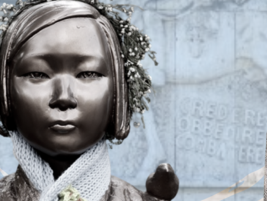
- Tackling Contested Histories for a Deeper Understanding of the Past and Present
-
The Contested Histories Initiative (CHI) is a Europe-based NGO dedicated to studying disputes over historical memorials in public spaces and promoting critical engagement with them. CHI’s Program Director, Paula O’Donohoe, spoke with Kyeol about the organization’s work and its broader vision.
-
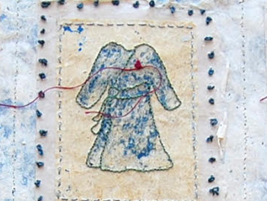
- Art as a Messenger of Women’s Stories
-
Rose Camastro-Pritchett’s “Comfort Women” project uses art to honor the dignity and strength of survivors of wartime sexual violence. Inspired by her research and personal experiences, she creates intimate, respectful works that connect historical trauma to ongoing conversations about gender-based violence today.
-

- Encountering Palestinian Women Who Stand Tall Amid Daily Crisis and Violence
-
Palestinian women who endure and resist occupation, oppression, and patriarchal structures, steadfastly continue life for the next generation.
-
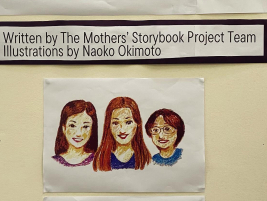
- My Mother Is More Than A Comfort Woman: A Storybook of the Lolas from Their Daughters’ Perspectives
-
My Mother Is More Than A Comfort Woman is a storybook that presents the experiences of Filipino “Comfort Women” survivors through the eyes of their daughters and a granddaughter.
-
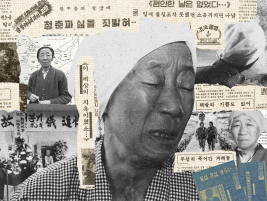
- A “Comfort Woman” Who Has Yet to Return Home, a Memory That Has Yet to Be Mourned: The Name Bae Bong-gi
-
Is it still possible to remember Bae Bong-gi’s life and mourn her death beyond the adversarial structure between nations?
-
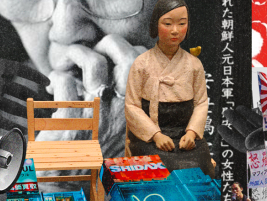
- Why the “Statue of Peace” Exhibition Is an Act of Practice
-
The solidarity practice of Japanese citizens who finally realized the exhibition of the “Statue of Peace” through the “Non-Freedom of Expression Exhibition”—more than a decade in the making.
-
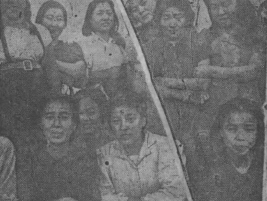
- Images of “Comfort Women” Survivors at the Time of Their Rescue by Allied Force, as Seen in a Chinese Magazine
-
A report on the “Comfort Women” survivors rescued by the Allied Forces, as featured in the Chinese magazine “Da Zhan Hua Ji,” published just beforethe end of World War Ⅱ.